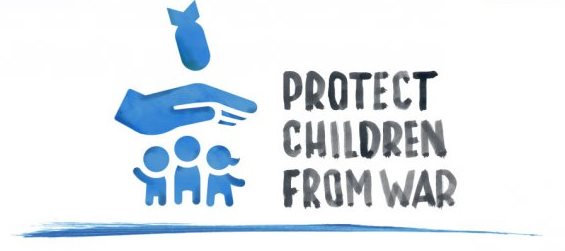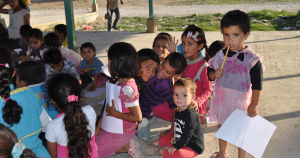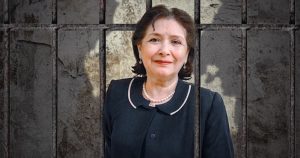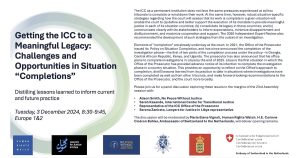Ten years after adopting the Paris Principles and Commitments on Children Associated with Armed Forces or Armed Groups, States, international organisations and civil society gathered in Paris yesterday to reaffirm their commitment to protecting children and enhancing their rights. The Conference, organised by the French Government and UNICEF, was an important moment to discuss progress since the original adoption of the Paris Principles in 2007 and identify ways to strengthen the protection of children in the years to come.
“The last ten years has seen some important improvements for children affected by armed conflict, not least that we have seen several armed forces and groups commit to not recruiting or using children in hostilities; we’ve also seen many children released from those groups”, said Alison Smith, NPWJ’s International Criminal Justice Director, who participated in the discussions in Paris yesterday. “The legal frameworks for the protection of children have been strengthened, with several States adhering to the Option Protocol to the Convention on the Rights of the Child raising the minimum age for recruitment to 18. We also welcome the fact that three new States – Kazakhstan, Myanmar and Tunisia – added their names to the Paris Principles, raising the total number of States committed to the Principles to 108”.
Against this background, however, not only has child recruitment or use not stopped, children continue to bear the brunt of armed conflict and massive political violence. “It is appalling that in 2017, millions of children around the world are being denied their childhood because of armed conflict”, Smith continued. “Quite frankly, despite the tremendous efforts of many actors to ensure the protection of children, it just isn’t good enough. We need to do more to increase the cost of harming children. Beyond meeting their needs before and after their rights have been violated, we need to ensure there is accountability for those who commit crimes against children and against the resources they need to live their lives and fulfil their potential. We call on all States and international justice institutions, including the International Criminal Court, to redouble their efforts to bring these perpetrators to justice, wherever and whoever they may be”.
For further information, please contact Amison Smith, legal counsel and Director for International Criminal Justice of NPWJ, on asmith@npwj.org / +32 2 548 39 12 or Nicola Giovannini (Press & Public Affairs Coordinator) on ngiovannini@npwj.org / +32 2 548 39 15.




